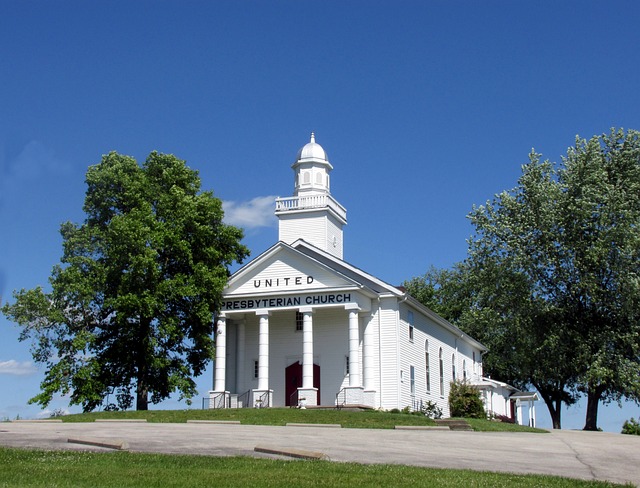Yes, Presbyterianism is a branch of Christianity. It is a Protestant denomination that follows the teachings and beliefs of Christianity, with a particular emphasis on the governance and structure of the church.
Table of Contents
The Origins and Beliefs of Presbyterianism
Presbyterianism is a branch of Christianity that traces its origins back to the Protestant Reformation in the 16th century. It is often asked whether Presbyterianism is like Christianity, and the answer is yes! Presbyterianism is a form of Christianity that follows the teachings of Jesus Christ and believes in the authority of the Bible.
The origins of Presbyterianism can be traced back to John Calvin, a French theologian who played a significant role in the Reformation. Calvin’s teachings emphasized the sovereignty of God and the importance of scripture in guiding the faith and practice of believers. These ideas formed the foundation of Presbyterianism.
Presbyterians believe in the Trinity, which is the belief in one God who exists in three persons: the Father, the Son (Jesus Christ), and the Holy Spirit. They also believe in the divinity of Jesus Christ and his role as the savior of humanity. Like other Christians, Presbyterians believe that Jesus died on the cross to atone for the sins of humanity and that through faith in him, individuals can have eternal life.
One of the distinctive features of Presbyterianism is its form of church governance. The word “Presbyterian” comes from the Greek word “presbyteros,” which means elder. In Presbyterian churches, decisions are made by a group of elders who are elected by the congregation. This system of governance is based on the belief that all believers are equal before God and have a role to play in the life of the church.
Presbyterians also place a strong emphasis on the authority of the Bible. They believe that the Bible is the inspired word of God and the ultimate authority for faith and practice. The Bible is seen as a guide for living a Christian life and understanding God’s will. Presbyterians study the Bible in depth and seek to apply its teachings to their daily lives.
Another important aspect of Presbyterianism is its emphasis on social justice and community involvement. Presbyterians believe that faith should be lived out in the world and that Christians have a responsibility to work for justice and peace. This commitment to social justice is rooted in the belief that all people are created in the image of God and deserve to be treated with dignity and respect.
Presbyterians also value education and intellectual inquiry. They believe that faith and reason are not mutually exclusive but can complement each other. Presbyterian churches often have strong educational programs and encourage their members to engage in thoughtful reflection and study.
In conclusion, Presbyterianism is a form of Christianity that shares many beliefs and practices with other Christian denominations. It traces its origins back to the Protestant Reformation and follows the teachings of Jesus Christ. Presbyterians believe in the Trinity, the divinity of Jesus, and the authority of the Bible. They have a unique form of church governance and place a strong emphasis on social justice, education, and intellectual inquiry. So, if you’re wondering whether Presbyterianism is like Christianity, the answer is a resounding yes!
Key Differences Between Presbyterianism and Other Christian Denominations

When it comes to Christianity, there are many different denominations that exist, each with its own unique beliefs and practices. One such denomination is Presbyterianism. If you’re wondering whether Presbyterianism is like Christianity in general, it’s important to understand the key differences between Presbyterianism and other Christian denominations.
One of the main differences between Presbyterianism and other Christian denominations is the way they are governed. In Presbyterianism, the church is governed by a group of elders known as the session. These elders are elected by the congregation and are responsible for making decisions on behalf of the church. This is in contrast to other denominations, such as Roman Catholicism, where the church is governed by a hierarchy of bishops and priests.
Another key difference is the belief in predestination. Presbyterians believe in the concept of predestination, which means that God has already determined who will be saved and who will not. This belief is based on the teachings of John Calvin, a prominent figure in the Protestant Reformation. Other Christian denominations, such as Baptists or Methodists, may not hold the same belief in predestination and instead emphasize the importance of free will.
Worship practices also differ between Presbyterianism and other Christian denominations. In Presbyterian churches, worship services often follow a structured format, with prayers, hymns, and a sermon. The sacraments of baptism and communion are also important aspects of Presbyterian worship. Other denominations may have different styles of worship, such as more informal or charismatic services.
The role of the clergy is another area where Presbyterianism differs from other Christian denominations. In Presbyterianism, ministers are considered to be equal to other elders in the church. They are not seen as having any special authority or power. This is in contrast to denominations like Catholicism or Eastern Orthodoxy, where priests are seen as having a unique role in administering the sacraments and providing spiritual guidance.
In terms of theology, Presbyterianism shares many core beliefs with other Christian denominations. Presbyterians believe in the Holy Trinity, the divinity of Jesus Christ, and the authority of the Bible. They also believe in the importance of salvation through faith in Jesus Christ. These beliefs are central to Christianity as a whole and are shared by many other denominations.
While there are certainly differences between Presbyterianism and other Christian denominations, it’s important to remember that all Christians share a common faith in Jesus Christ. Despite these differences, Christians of all denominations strive to follow the teachings of Jesus and live out their faith in their daily lives.
In conclusion, Presbyterianism is a distinct Christian denomination with its own unique beliefs and practices. While it shares many core beliefs with other Christian denominations, there are key differences in terms of governance, theology, worship practices, and the role of clergy. However, it’s important to remember that despite these differences, all Christians share a common faith in Jesus Christ and strive to live out their beliefs in their daily lives.
Presbyterian Worship Practices and Traditions
Presbyterian Worship Practices and Traditions
When it comes to worship practices and traditions, the Presbyterian Church has its own unique approach. While it is a branch of Christianity, there are some distinct differences that set it apart from other denominations. In this article, we will explore some of the key aspects of Presbyterian worship and how they compare to other Christian traditions.
One of the defining features of Presbyterian worship is its emphasis on simplicity. Unlike some other Christian denominations that may have elaborate rituals and ceremonies, Presbyterians prefer a more straightforward and unadorned approach. This simplicity is reflected in their worship spaces, which are often devoid of ornate decorations or statues. Instead, the focus is on the Word of God and the community coming together to worship and learn.
Another important aspect of Presbyterian worship is the centrality of the Bible. Scripture plays a vital role in every aspect of their worship, from the readings and sermons to the prayers and hymns. Presbyterians believe in the authority of the Bible and its ability to guide their faith and practice. This emphasis on the Word of God is a cornerstone of Presbyterian worship and sets it apart from other Christian traditions that may place more emphasis on tradition or personal experiences.
In Presbyterian worship services, you will often find a strong emphasis on preaching. The sermon is considered a crucial part of the worship experience, as it provides an opportunity for the congregation to learn and reflect on the teachings of the Bible. The sermon is typically delivered by a minister who has undergone theological training and is seen as a spiritual leader within the community. The goal of the sermon is to provide guidance and inspiration for the congregation, helping them to apply the teachings of the Bible to their daily lives.
Another notable aspect of Presbyterian worship is the use of hymns and psalms. Music holds a special place in Presbyterian worship, with congregational singing being an integral part of the service. Hymns and psalms are carefully selected to complement the theme of the service and to encourage congregational participation. The use of music in worship is seen as a way to express praise and gratitude to God, as well as to foster a sense of unity and community among the congregation.
In addition to these core elements, Presbyterian worship also includes sacraments such as baptism and the Lord’s Supper. These sacraments are seen as visible signs of God’s grace and are celebrated within the context of the worship service. Baptism is typically performed on individuals who have made a profession of faith, while the Lord’s Supper, also known as communion, is a symbolic reenactment of Jesus’ Last Supper with his disciples.
In conclusion, while Presbyterianism is a branch of Christianity, it has its own distinct worship practices and traditions. The emphasis on simplicity, the centrality of the Bible, the importance of preaching, the use of hymns and psalms, and the celebration of sacraments all contribute to the unique worship experience of Presbyterians. While there may be similarities with other Christian traditions, it is these distinctive elements that make Presbyterian worship stand out. Whether you are a Presbyterian or simply curious about different Christian traditions, exploring the worship practices and traditions of the Presbyterian Church can provide valuable insights into the rich tapestry of Christian worship.
Exploring the Role of Presbyterianism in Modern Christianity
Presbyterianism is a branch of Christianity that has its roots in the Protestant Reformation. It is a denomination that follows the teachings of John Calvin, a prominent figure in the Reformation movement. But is Presbyterianism like Christianity as a whole? Let’s explore the role of Presbyterianism in modern Christianity.
To understand the relationship between Presbyterianism and Christianity, it’s important to first grasp the basic tenets of Presbyterian beliefs. Presbyterians believe in the authority of the Bible as the word of God and the ultimate guide for faith and practice. They also emphasize the sovereignty of God and the importance of salvation through faith in Jesus Christ.
In many ways, Presbyterianism aligns with the core principles of Christianity. Like other Christian denominations, Presbyterians believe in the Trinity – the Father, Son, and Holy Spirit – as the three persons of God. They also affirm the divinity of Jesus Christ and his role as the savior of humanity.
However, Presbyterianism does have some distinct characteristics that set it apart from other Christian denominations. One of the key features of Presbyterianism is its form of church governance. Presbyterians are known for their representative form of church government, where decisions are made by elected elders who serve as spiritual leaders within the congregation. This differs from other forms of church governance, such as episcopal or congregational models.
Another distinguishing aspect of Presbyterianism is its emphasis on the importance of education and intellectual inquiry. Presbyterians have a long history of valuing education and scholarship, with many Presbyterian churches establishing schools and colleges. This commitment to education is rooted in the belief that a well-informed faith is a strong faith.
Presbyterians also place a strong emphasis on social justice and community involvement. Many Presbyterian churches actively engage in charitable work and advocate for social causes such as poverty alleviation, racial equality, and environmental stewardship. This commitment to social justice is seen as an integral part of living out one’s faith and following the teachings of Jesus.
While Presbyterianism has its own unique characteristics, it is important to remember that it is still a part of the broader Christian tradition. Presbyterians share a common belief in Jesus Christ as the son of God and the savior of humanity. They also affirm the central teachings of Christianity, such as the importance of love, forgiveness, and the pursuit of righteousness.
In conclusion, Presbyterianism is a branch of Christianity that shares many core beliefs and values with other Christian denominations. While it has its own distinct characteristics, such as its form of church governance and emphasis on education and social justice, it is still firmly rooted in the teachings of Jesus Christ. So, if you’re wondering if Presbyterianism is like Christianity, the answer is yes – it is a unique expression of the Christian faith that seeks to follow Jesus and live out his teachings in the world.
Conclusion
Yes, Presbyterianism is a branch of Christianity.


